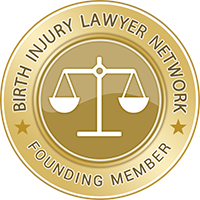Tennessee Birth Injury Lawyers
Search Lawyers by Cities (Tennessee)
Tennessee Medical Liability/Malpractice Statutes of Limitation
All states have set deadlines for when a patient may file a civil claim, known as statutes of limitation, for medical liability and malpractice claims. The majority of the states have special provisions regarding the time limits for minors to file medical liability and malpractice claims. Twenty-two states have special provisions regarding foreign objects.
Tenn. Code Ann. §29-26-116 and §28-1-106 One year from injury or discovery, no more than three years from act except where there is fraudulent concealment on the part of the defendant, in which case the action shall be commenced within one year after discovery that the cause of action exists. Foreign object: within one year after the alleged injury or wrongful act is discovered or should have been discovered. Minors under age 18: may commence the action, within the time of limitation for the particular cause of action, unless it exceeds three years, and in that case within three years from majority.
Tennessee Medical Liability/Medical Malpractice Laws
Damage Award Limit or Cap
§29-39-101 et seq. (2011 Public Chapter 510). (a) ln a civil action, each injured plaintiff may be awarded: (1) Compensation for economic damages suffered by each injured plaintiff; and (2) Compensation for any noneconomic damages suffered by each injured plaintiff not to exceed $750,000 for all injuries and occurrences that were or could have been asserted, regardless of whether the action is based on a single act or omission or a series of acts or omissions that allegedly caused the injuries or death.
(c) lf an injury or loss is catastrophic in nature, as defined, the $750,000 amount limiting noneconomic damages, as set forth in subsections (a)(2) through (b) is increased to, but the amount of damages awarded as noneconomic damages shall not exceed, $1 million.
(e) All noneconomic damages awarded to each injured plaintiff, including damages for pain and suffering, as well as any claims of a spouse or children for loss of consortium or any derivative claim for noneconomic damages, shall not exceed in the aggregate a total of $750,000, unless subdivision (c) applies, in which case the aggregate amount shall not exceed $1 million.
(h) The limitation on the amount of noneconomic damages imposed by subsections (a)(2) through (e) shall not apply to personal injury and wrongful death actions: (1) lf the defendant had a specific intent to inflict serious physical injury, and the defendant's intentional conduct did, in fact, injure the plaintiff; (2) lf the defendant intentionally falsified, destroyed or concealed records containing material evidence with the purpose of wrongfully evading liability in the case at issue, provided, however, that this subsection does not apply to the good faith withholding of records pursuant to privileges and other laws applicable to discovery, nor does it apply to the management of records in the normal course of business or in compliance with the defendant's document retention policy or state or federal regulations; or (3) lf the defendant was under the influence of alcohol, drugs or any other intoxicant or stimulant, resulting in his or her judgment being substantially impaired, and causing the injuries or death.
(c) lf an injury or loss is catastrophic in nature, as defined, the $750,000 amount limiting noneconomic damages, as set forth in subsections (a)(2) through (b) is increased to, but the amount of damages awarded as noneconomic damages shall not exceed, $1 million.
(e) All noneconomic damages awarded to each injured plaintiff, including damages for pain and suffering, as well as any claims of a spouse or children for loss of consortium or any derivative claim for noneconomic damages, shall not exceed in the aggregate a total of $750,000, unless subdivision (c) applies, in which case the aggregate amount shall not exceed $1 million.
(h) The limitation on the amount of noneconomic damages imposed by subsections (a)(2) through (e) shall not apply to personal injury and wrongful death actions: (1) lf the defendant had a specific intent to inflict serious physical injury, and the defendant's intentional conduct did, in fact, injure the plaintiff; (2) lf the defendant intentionally falsified, destroyed or concealed records containing material evidence with the purpose of wrongfully evading liability in the case at issue, provided, however, that this subsection does not apply to the good faith withholding of records pursuant to privileges and other laws applicable to discovery, nor does it apply to the management of records in the normal course of business or in compliance with the defendant's document retention policy or state or federal regulations; or (3) lf the defendant was under the influence of alcohol, drugs or any other intoxicant or stimulant, resulting in his or her judgment being substantially impaired, and causing the injuries or death.
§29-39-104 (2011 Public Chapter 510). Punitive or exemplary damages shall not exceed an amount equal to the greater of: (A) Two times the total amount of compensatory damages awarded; or (B) $500,000.
(7) The limitation on the amount of punitive damages imposed by subdivision (a)(5) shall not apply to actions brought for damages or an injury: (A) lf the defendant had a specific intent to inflict serious physical injury, and the defendant's intentional conduct did, in fact, injure the plaintiff; (B) lf the defendant intentionally falsified, destroyed or concealed records containing material evidence with the purpose of wrongfully evading liability in the case at issue, provided, however, that this subsection does not apply to the good faith withholding of records pursuant to privileges and other laws applicable to discovery, nor does it apply to the management of records in the normal course of business or in compliance with the defendant's document retention policy or state or federal regulations; or (C) lf the defendant was under the influence of alcohol, drugs or any other intoxicant or stimulant, resulting in his or her judgment being substantially impaired, and causing the injuries or death. For purposes of this subsection, a defendant shall not be deemed to be under the influence of drugs or any other intoxicant or stimulant. if the defendant was using lawfully prescribed drugs administered in accordance with a prescription or over-the-counter drugs in accordance with the written instructions of the manufacturer.
(7) The limitation on the amount of punitive damages imposed by subdivision (a)(5) shall not apply to actions brought for damages or an injury: (A) lf the defendant had a specific intent to inflict serious physical injury, and the defendant's intentional conduct did, in fact, injure the plaintiff; (B) lf the defendant intentionally falsified, destroyed or concealed records containing material evidence with the purpose of wrongfully evading liability in the case at issue, provided, however, that this subsection does not apply to the good faith withholding of records pursuant to privileges and other laws applicable to discovery, nor does it apply to the management of records in the normal course of business or in compliance with the defendant's document retention policy or state or federal regulations; or (C) lf the defendant was under the influence of alcohol, drugs or any other intoxicant or stimulant, resulting in his or her judgment being substantially impaired, and causing the injuries or death. For purposes of this subsection, a defendant shall not be deemed to be under the influence of drugs or any other intoxicant or stimulant. if the defendant was using lawfully prescribed drugs administered in accordance with a prescription or over-the-counter drugs in accordance with the written instructions of the manufacturer.
Limits on Attorney Fees
§29.26.120. Contingent fees shall be awarded in an amount to be determined by the court on the basis of time and effort devoted to the litigation by the claimant's attorney, complexity of the claim and other pertinent matters in connection therewith, not to exceed 33-1/3 percent of all damages awarded to the claimant.
Periodic Payments
No applicable statute.
Patient Compensation or Injury Fund
None provided.
Medical or Peer Review Panels
§63-6-219. Peer Review Law
§63-9-114. Confidentiality of peer review committees made up of osteopathic physicians
Find an Experienced Birth Injury Attorney in your Local Community
 Find A Lawyer in Columbus, OH
Find A Lawyer in Ohio
Find A Lawyer in Any State
Find A Lawyer in Columbus, OH
Find A Lawyer in Ohio
Find A Lawyer in Any State
